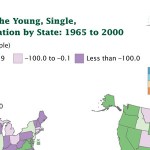Jorge Elorza and an Incomplete Pantheist God
Last week, Bishop Thomas Tobin of the Diocese of Providence, asked…
So, can anyone help determine: Is Jorge Elorza an atheist or not? It would be good to know before Election Day.
It is possible to anlayze Professor Elorza’s law-review article, using the categories of conventional theology, and find a place for — and some flaws with — the idea of the “memist” God that is the primary subject of his theological speculations on the nature of God.
Traditional theology often concerns itself with two main aspects to the nature of God, transcendence and immanence. Transcendence, in a nutshell, is God being greater than everything imaginable. Immanence, in a same-sized nutshell, is God’s living presence everywhere.
That God can be both transcendent and immanent is the mystery of the “theist” God, the God of Judaism and Christianity. The God who is transcendent and immanent can know what’s happening inside of all of the stars at the other end of the universe, while simultaneously knowing and caring about the life of every individual over at this end. Professor Elorza is correct that science alone has a hard time finding a place for this God, but that’s a separate question from whether He exists.
A transcendent but not immanent God, both in traditional theology and in Elorza’s paper, is a “deist” God. This is the God who is more than everything, but without being near to His creation, i.e. the God who creates the universe, sets it into motion, and then leaves it to run on its own.
The other combination is possible as well, a God who is immanent but not transcendent. This is the God who is everywhere, but not more than everything. In a large swath of theological literature, a God who is immanent but not transcendent is named a “pantheist” God.
The notion of a pantheist God could overlap what Elorza calls in his law-review article a memist God, a God who “resides entirely in the minds of its adherents”. By the very definition, a memist God is present wherever there is a believer, arguably satisfying the condition of immanence, but a problem with Elorza’s overall scheme leaves memism as a pantheism that is incomplete.
Professor Elorza states in his law review article that a major question of interest to theology, “why is there something rather than nothing”, has no bearing on his argument. And indeed, by itself, the bare fact of the existence of the universe leaves all three views of God intact. Obviously, the theist God or a deist God could create the universe from nothing, while a pantheist God could also create a universe from nothing, and somehow divide himself/herself/itself amongst his/her/its creation.
But even if we are to look no further back than the first moment after creation, Elorza’s God who “resides entirely in the minds of its adherents” still leaves outstanding the problem of who it was that created the minds where God resides. Ruling out the existence of a theist God, as Elorza does, leaves two possibilities. One is that that human consciousness has existed in some form for all time, even before there were humans. The other explanation is that the memist god was created by a bigger God, either a more comprehensive pantheist God, or a deist God who set into motion the creation of the believers and their minds and then left them — though in this second case, the memist god wouldn’t be God at all.
Either way, Professor Elorza has made a scholarly error in elevating his memism to the status of deism and theism, because he cannot say that his possible definitions of God “cover the entire spectrum” (his claim), until he accounts for who or what created the minds that currently hold a memist God.
Despite the really big holes in his theology, at the time Professor Elorza wrote the paper, he declared it truth enough to be taught in public schools. It is a positive development that the Providence mayoral campaign has caused him to deny any intention to implement this in the immediate term, but it’s still a legitimate to ask him, as a practicing politician, whether he continues to believe that pantheism (complete or not) or deism can be taught in public schools, while theism can be banned, without violating the “separation of church and state”.


